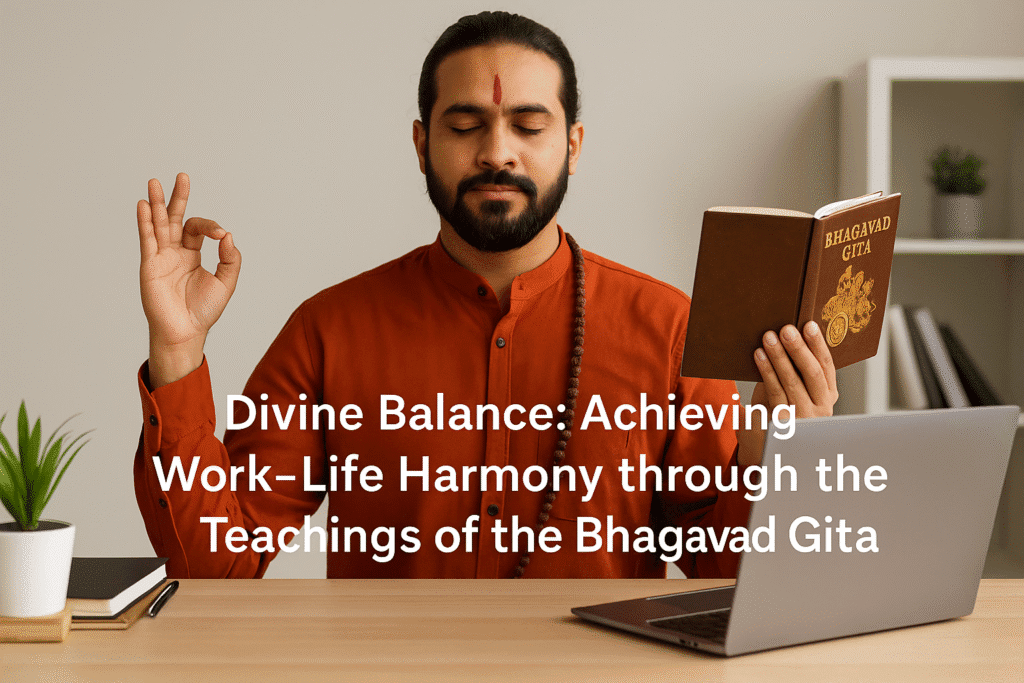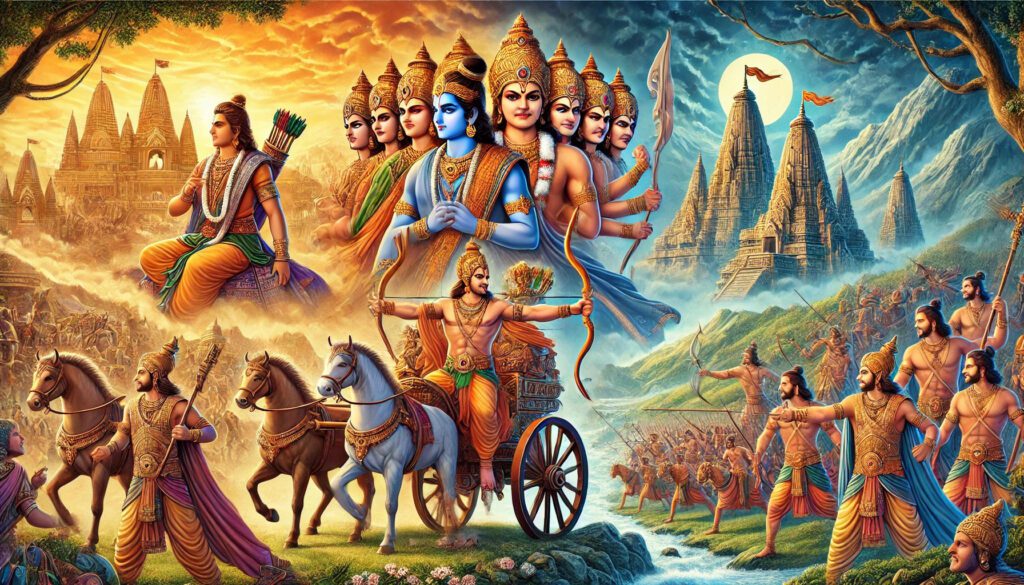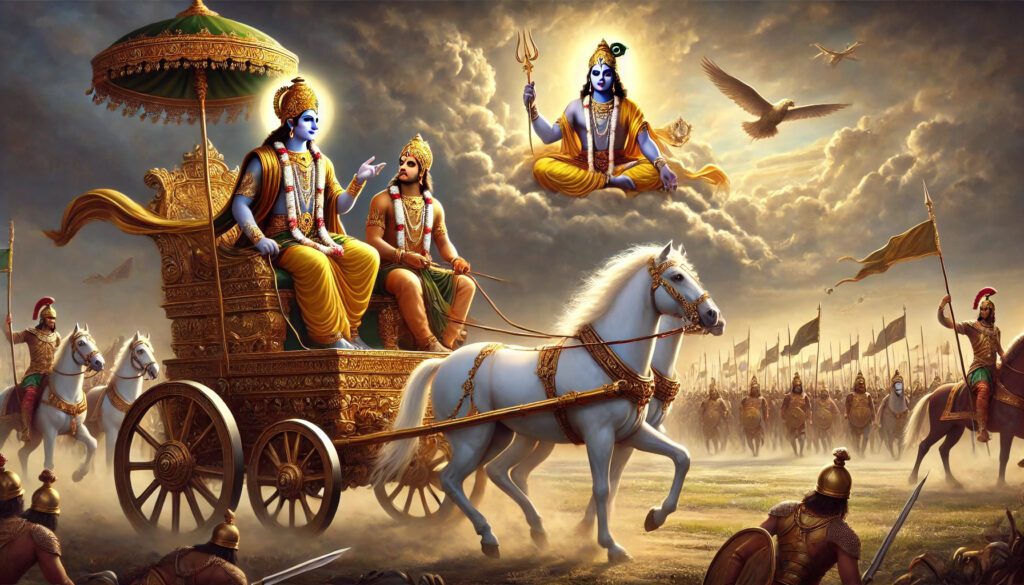In the whirlwind of modern life—endless responsibilities, digital distractions, and the pressure to perform—the search for work-life balance often feels like chasing a mirage. Yet, thousands of years ago, the Bhagavad Gita, a timeless spiritual classic, offered a path to harmony not through escape, but through profound inner transformation. Far beyond just philosophy, the Gita serves as a manual for living with purpose, peace, and balance.
Understanding Work-Life Balance through the Gita
Work-life balance is not just about managing time—it’s about aligning our actions with our inner values. The Gita’s wisdom, shared in the sacred dialogue between Lord Krishna and Arjuna on the battlefield of Kurukshetra, addresses the very heart of human conflict: how to act in the world without being consumed by it.
- Nishkama Karma – Working Without Attachment
“Karmanye vadhikaraste, Ma phaleshou kadachana…”
(“You have a right to perform your prescribed duties, but you are not entitled to the fruits of your actions.”) – Gita 2.47
This verse forms the core of work-life balance. Most stress comes from expectation—success, recognition, results. Krishna teaches that peace lies in effort, not outcome. When we do our duties sincerely without clinging to results, we find joy in the process and reduce anxiety over outcomes. This mindset frees us from guilt, burnout, and obsessive work patterns.
- Svadharma – Embracing Your Unique Role
Each of us has a unique nature and responsibility—what the Gita calls svadharma. When we align our career, relationships, and lifestyle with our inner calling, life feels less like a burden and more like a sacred offering.
Trying to imitate others or comparing ourselves brings inner conflict. Instead, the Gita teaches us to honor our role—be it as a professional, a parent, a seeker, or all at once—and to perform it with dedication and devotion.
- Equanimity in Action – Samatvam Yoga Uchyate
“Samatvam yoga uchyate”
(“Evenness of mind is called yoga.”) – Gita 2.48
Work-life balance requires emotional balance. The Gita emphasizes equanimity in success and failure, joy and sorrow. This mental steadiness is not detachment from life but rising above reactions. Whether we face deadlines or downtime, praise or criticism, staying centered allows us to respond rather than react.
- Mindful Living through Dhyana Yoga
Chapter 6 of the Gita explains Dhyana Yoga—the path of meditation. Krishna emphasizes the importance of solitude, self-discipline, and regular meditation to calm the mind. In today’s chaotic schedules, even 10-15 minutes of mindfulness or japa can anchor us. The Gita reminds us that without inner stillness, external balance is impossible.
- Offering Work as Worship – Karma Yoga
The Gita encourages us to transform everyday work into worship. When every task, however small, is done with devotion and surrender to the Divine, it becomes sacred. Cooking, parenting, meetings, emails—everything can be an offering (yajna). This perspective shifts life from exhaustion to exaltation.
- Letting Go through Bhakti and Surrender
“Sarva dharman parityajya, mam ekam sharanam vraja…”
(“Abandon all varieties of duties and just surrender unto Me.”) – Gita 18.66
At the peak of spiritual understanding, Krishna calls for surrender. True balance is achieved not by control, but by trust—trusting the Divine plan, releasing over-control of life, and flowing with grace. When we offer our work, relationships, and time to God, balance arises naturally.
A Balanced Life is a Spiritual Life
The Gita doesn’t separate work from worship, or the material from the spiritual. It invites us to live fully in the world while remaining inwardly connected to the Divine. Whether you’re managing deadlines or diapers, meetings or meditation, the essence of balance lies in the attitude of selfless service, mindful action, and loving surrender.
In the chaos of Kurukshetra, Krishna gifted the world the secret to inner peace. In our modern Kurukshetras, may we too discover divine balance.



